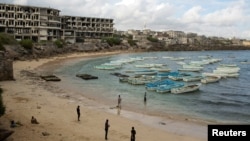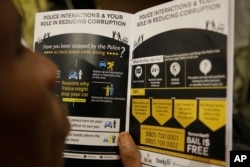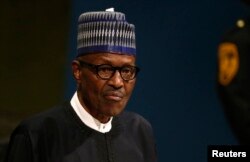Despite ongoing efforts to curb corruption, billions of dollars continue to flow illicitly from countries around the world. That’s led to a range of multinational efforts to stem corruption and repatriate stolen funds, including a new U.S. State Department event designed to find collaborative solutions to corrupt practices.
Along with the U.S., Britain hosted the event, the Global Forum on Asset Recovery (GFAR), earlier this week, ahead of International Anti-Corruption Day on December 9. The forum convened investigators and prosecutors from 26 jurisdictions around the world to establish working relationships that will make it easier to prosecute criminals and return stolen assets. Attendees discussed case studies from four countries, including Nigeria and Tunisia.
Robert Leventhal, deputy director of the Office of Anti-Crime Programs at the U.S. State Department, said the fight against corruption contributes to peace and stability worldwide.
“Over the years, we’ve learned that the impact of corruption extends far beyond the borders of the country in which it takes place,” Leventhal said during a conference call with journalists participating from across the continent.
“Kleptocracy, or high-level corruption, breeds instability by driving a wedge between government and the people,” he added. “It turns institutions meant to serve the people into tools for exploiting them, and this can leave many feeling disempowered and convinced that the system is rigged.”
Leventhal believes that U.S. efforts to fight corruption play a critical role in supporting the rule of law and even battling terrorism. Those efforts include repatriating $150 million in lost funds and freezing $3.5 billion in assets linked to foreign corruption since fiscal 2016. “[Corruption] can open the door for transnational organized crime and extremist groups to exploit this frustration for their own purposes,” he said.
Rising corruption
Corruption in Africa rose from 2012 to 2016 in 25 countries, fell in 19 countries and remained stagnant in seven, based on rankings by Transparency International, an organization focused on ending corruption with chapters in more than 100 countries.
Transparency International ranks perceived levels of corruption in the public sector based on assessments from international analysts and experts. Overall, corruption in Africa has risen three years in a row.
Corruption often goes hand-in-hand with violence and insecurity. The most corrupt countries in the most recent report — Somalia and South Sudan — have both faced protracted conflicts, food insecurity and political instability.
Corruption declines in more open societies. The least corrupt country based on Transparency International’s index, Botswana, also had the highest trade openness in 2017, according to the Index of Public Integrity, a project of the European Research Center for Anti-Corruption and State-Building. Cape Verde, the second-least corrupt country, has one of the continent’s freest media, according to Reporters Without Borders.
Endemic problem
Nigeria, Africa’s most populous nation and largest economy, has also struggled with corruption, so much so that President Muhammadu Buhari made addressing it a major campaign promise.
At GFAR, Attorney General and Minister of Justice Abubakar Malam called corruption an “endemic” problem in Nigeria, made worse by how long it can take to repair the damage when wealth illegally leaves the country. It takes just “a click of the button for illicit wealth to leave Nigeria to foreign destinations, but then the process of repatriating such wealth takes ages,” Malam said.






